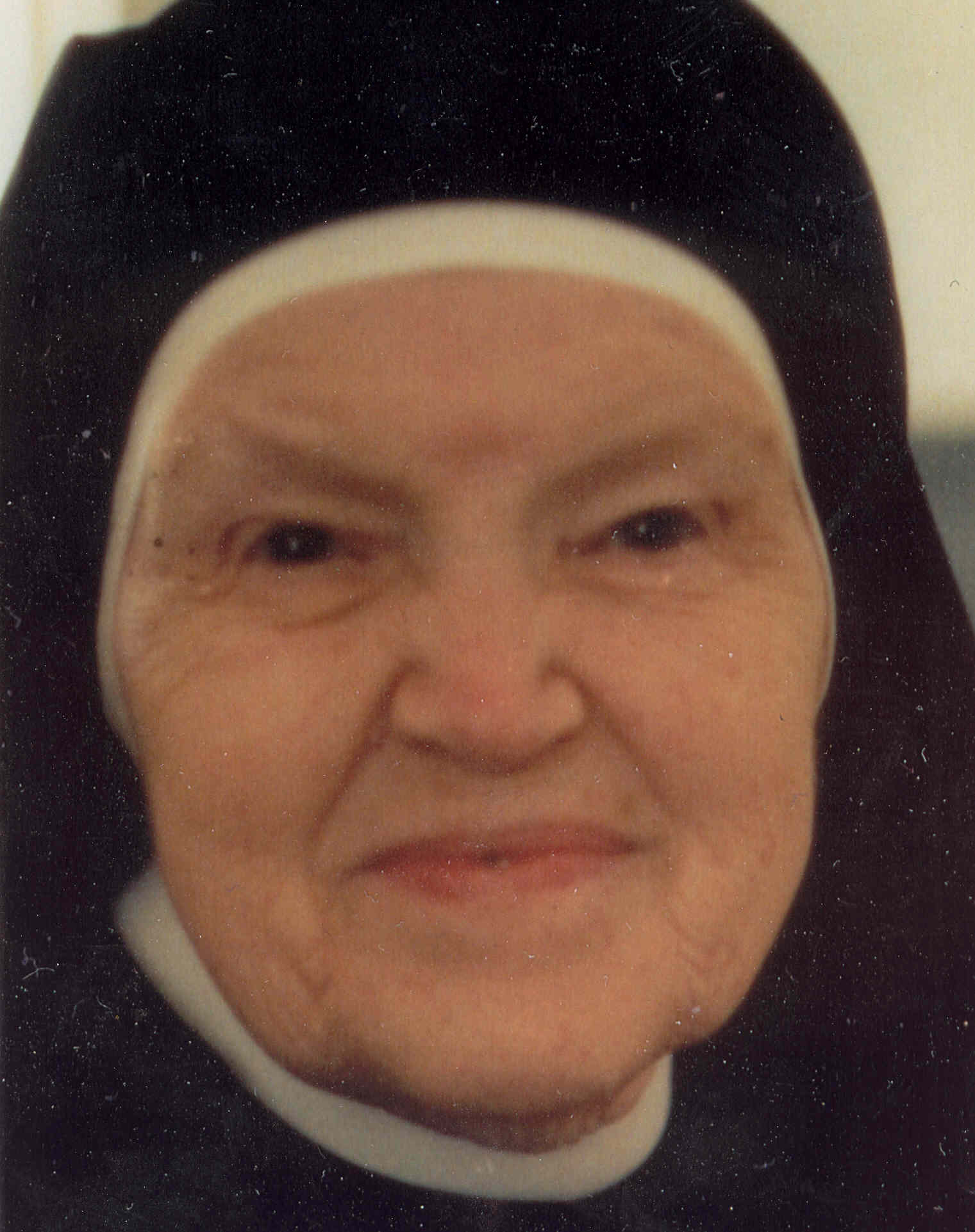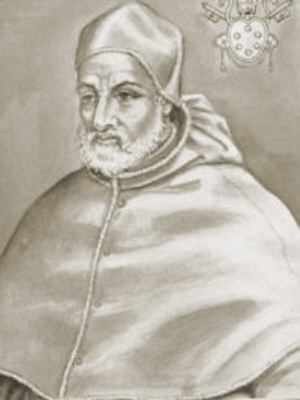|
Conclavist
A conclavist was a personal aide of a cardinal (Catholicism), cardinal present in a papal conclave. The term is sometimes used to refer to all present with a conclave, including the cardinal-electors, but is more properly applied only to the non-cardinals. Conclavists played an important historical role in the negotiations of papal elections and in the evolution of secrecy (or the lack thereof), writing many of the extant accounts of papal elections. Three popes have been elected from former conclavists, including Pope Pius VI (a conclavist in the 1740 conclave). Other conclavists have later been elevated to the cardinalate, such as Pierre Guérin de Tencin (1721), Niccolò Coscia (1724), Christoph Anton Migazzi (1740), and Carlo Confalonieri (1922). Pope Paul VI in effect eliminated the role of the historical conclavist by banning private aides and creating a common support staff. Background The participation of the laity in the election of a pope predates the creation of the pap ... [...More Info...] [...Related Items...] OR: [Wikipedia] [Google] [Baidu] |
Papal Conclave
A papal conclave is a gathering of the College of Cardinals convened to elect a bishop of Rome, also known as the pope. Catholics consider the pope to be the apostolic successor of Saint Peter and the earthly head of the Catholic Church. Concerns around political interference led to reforms after the interregnum of 1268–1271 and Pope Gregory X's decree during the Second Council of Lyons in 1274 that the cardinal electors should be locked in seclusion (Latin for 'with a key') and not permitted to leave until a new pope had been elected. Conclaves are now held in the Sistine Chapel of the Apostolic Palace in Vatican City.John Paul II (22 February 1996)''Universi Dominici gregis''. '' Apostolic constitution''. Vatican City: Vatican Publishing House. Since the Apostolic Age, the bishop of Rome, like other bishops, was chosen by the consensus of the clergy and laity of the diocese.Baumgartner 2003, p. 4. The body of electors was more precisely defined when, in 1059, the C ... [...More Info...] [...Related Items...] OR: [Wikipedia] [Google] [Baidu] |
Pope Pius VI
Pope Pius VI ( it, Pio VI; born Count Giovanni Angelo Braschi, 25 December 171729 August 1799) was head of the Catholic Church and ruler of the Papal States from 15 February 1775 to his death in August 1799. Pius VI condemned the French Revolution and the suppression of the Gallican Church that resulted from it. French troops commanded by Napoleon Bonaparte defeated the papal army and occupied the Papal States in 1796. In 1798, upon his refusal to renounce his temporal power, Pius was taken prisoner and transported to France. He died eighteen months later in Valence. His reign of over two decades is the fifth-longest in papal history. Biography Early years Giovanni Angelo Braschi was born in Cesena on Christmas Day in 1717 as the eldest of eight children to Count Marco Aurelio Tommaso Braschi and Anna Teresa Bandi. His siblings were Felice Silvestro, Giulia Francesca, Cornelio Francesco, Maria Olimpia, Anna Maria Costanza, Giuseppe Luigi and Maria Lucia Margherita. His matern ... [...More Info...] [...Related Items...] OR: [Wikipedia] [Google] [Baidu] |
Pierre Guérin De Tencin
Pierre-Paul Guérin de Tencin ( Grenoble, 22 August 1679 – 2 March 1758), French ecclesiastic, was archbishop of Embrun and Lyon, and a cardinal. His sister was Claudine Guérin de Tencin. Biography After studying with the Oratorians in his native Grenoble, he entered the Sorbonne, where he became prior in 1702, and obtained the doctorate in 1705. He was then appointed Vicar-General of the diocese of Sens and, in 1721, accompanied Cardinal de Rohan to Rome as his conclavist, to support the candidacy of Cardinal Conti ( Innocent XIII), from whom he had obtained a promise to bestow the purple on the French minister Guillaume Dubois. He remained at Rome as French ''chargé d'affaires'', with the appointment ''in commendam'' of abbot of Trois-Fontaines to support him (1739–1753), until Benedict XIII, with whom he was on cordial terms of intimacy and very influential, consecrated him Archbishop of Embrun (26 June 1724). On 22 February 1739, Guérin de Tencin was created ... [...More Info...] [...Related Items...] OR: [Wikipedia] [Google] [Baidu] |
Carlo Confalonieri
Carlo Confalonieri (25 July 1893 – 1 August 1986) was an Italian cardinal of the Roman Catholic Church. He served as prefect of the Congregation for Bishops from 1967 to 1973, and dean of the College of Cardinals from 1977 until his death. Confalonieri was elevated to the cardinalate in 1958. Biography Early life Confalonieri was born in Seveso. His father was a cabinet-maker.''Time''The New Cardinals22 December 1958 Carlo was baptized by Fr. Ambrogio Sirtori the next day, on 26 July. Confirmed on 13 February 1901, Confalonieri received his first Communion on 5 May 1904. He entered the seminary in Seveso in 1904, and then archdiocesan seminary of Monza in 1909. After studying at a Milan Milan ( , , Lombard language, Lombard: ; it, Milano ) is a city in northern Italy, capital of Lombardy, and the List of cities in Italy, second-most populous city proper in Italy after Rome. The city proper has a population of about 1.4 ...ese lyceum, he went to Rome to attend the ... [...More Info...] [...Related Items...] OR: [Wikipedia] [Google] [Baidu] |
Papal Conclave, 1484
The 1484 papal conclave (August 26–29) elected Pope Innocent VIII after the death of Pope Sixtus IV. The election At the death of Sixtus IV, the conclave of cardinals that met to elect his successor numbered thirty-two cardinals. The immediate context of the election was the nearly unprecedented packing of the College of Cardinals by Sixtus IV, not only in terms of overall size, but also in terms of cardinal-nephews and crown cardinals.Burkle-Young, Francis A. 1998.The election of Pope Innocent VIII (1484). As a result, nearly all of the non-Venetian cardinals supported the continuation of Sixtus IV's policies of isolation towards the Republic of Venice, specifically the Peace of Bagnolo. However, the two factions of cardinals differed over whether the church ought to prioritize the continuation of the Italian League or should prioritize papal power (especially vis-a-vis Naples) over the preservation of the peace. Cardinal Borja led the first faction and Cardinal della Rovere, ... [...More Info...] [...Related Items...] OR: [Wikipedia] [Google] [Baidu] |
Papal Conclave, 1549–1550
The pope ( la, papa, from el, πάππας, translit=pappas, 'father'), also known as supreme pontiff ( or ), Roman pontiff () or sovereign pontiff, is the bishop of Rome (or historically the patriarch of Rome), head of the worldwide Catholic Church, and has also served as the head of state or sovereign of the Papal States and later the Vatican City State since the eighth century. From a Catholic viewpoint, the primacy of the bishop of Rome is largely derived from his role as the apostolic successor to Saint Peter, to whom Petrine primacy, primacy was conferred by Jesus, who gave Peter the Keys of Heaven and the powers of "binding and loosing", naming him as the "rock" upon which the Church would be built. The current pope is Pope Francis, Francis, who was 2013 papal conclave, elected on 13 March 2013. While his office is called the papacy, the ecclesiastical jurisdiction, jurisdiction of the episcopal see is called the Holy See. It is the Holy See that is the sovereign enti ... [...More Info...] [...Related Items...] OR: [Wikipedia] [Google] [Baidu] |
Gambling On Papal Elections
Gambling on papal elections has at least a 500-year history. Betting on 16th-century papal conclaves are among the first documented examples of gambling on election outcomes.Paul W. Rhode and Koleman Strumpf. 2008.Historical Political Futures Markets: An International Perspective". NBER Working Paper 14377. During the same period, gambling was also common on the outcomes of secular Italian elections, such as that of the Doge of Venice. 15th century The Republic of Venice forbade betting on the pope's life in 1419, and canceled bets already made. Life insurance policies were often taken out on the current pope, sometimes as genuine insurance by businessmen owed money by the papacy who feared a change of Pontiff, but also a purely speculative venture. Such policies on the lives of popes and other notable figures were forbidden in Barcelona (1435) and Genoa (1467 and 1494). 16th century The first recorded example of gambling on the candidate to be selected by a papal election occurs ... [...More Info...] [...Related Items...] OR: [Wikipedia] [Google] [Baidu] |
Benefice
A benefice () or living is a reward received in exchange for services rendered and as a retainer for future services. The Roman Empire used the Latin term as a benefit to an individual from the Empire for services rendered. Its use was adopted by the Western Church in the Carolingian Era as a benefit bestowed by the crown or church officials. A benefice specifically from a church is called a precaria (pl. ''precariae)'', such as a stipend, and one from a monarch or nobleman is usually called a fief. A benefice is distinct from an allod, in that an allod is property owned outright, not bestowed by a higher authority. Roman Catholic Church Roman imperial origins In ancient Rome a ''benefice'' was a gift of land (precaria) for life as a reward for services rendered, originally, to the state. The word comes from the Latin noun ''beneficium'', meaning "benefit". Carolingian Era In the 8th century, using their position as Mayor of the Palace, Charles Martel, Carloman I and Pepi ... [...More Info...] [...Related Items...] OR: [Wikipedia] [Google] [Baidu] |
Cardinal (Catholicism)
A cardinal ( la, Sanctae Romanae Ecclesiae cardinalis, literally 'cardinal of the Holy Roman Church') is a senior member of the clergy of the Catholic Church. Cardinals are created by the ruling pope and typically hold the title for life. Collectively, they constitute the College of Cardinals. Their most solemn responsibility is to elect a new pope in a conclave, almost always from among themselves (with a few historical exceptions), when the Holy See is vacant. During the period between a pope's death or resignation and the election of his successor, the day-to-day governance of the Holy See is in the hands of the College of Cardinals. The right to participate in a conclave is limited to cardinals who have not reached the age of 80 years by the day the vacancy occurs. In addition, cardinals collectively participate in papal consistories (which generally take place annually), in which matters of importance to the Church are considered and new cardinals may be created. Cardin ... [...More Info...] [...Related Items...] OR: [Wikipedia] [Google] [Baidu] |
Pope Pius IV
Pope Pius IV ( it, Pio IV; 31 March 1499 – 9 December 1565), born Giovanni Angelo Medici, was head of the Catholic Church and ruler of the Papal States from 25 December 1559 to his death in December 1565. Born in Milan, his family considered itself a branch of the House of Medici and used the same coat of arms. Although modern historians have found no proof of this connection, the Medici of Florence recognized the claims of the Medici of Milan in the early 16th century. Pope Paul III appointed Medici Archbishop of Ragusa, and sent him on diplomatic missions to Germany and Hungary. He presided over the final session of the Council of Trent. His nephew, Cardinal Charles Borromeo, was a close adviser. As pope, Pius IV initiated a number of building projects in Rome, including one to improve the water supply. Life Early life Giovanni Angelo Medici was born in Milan on 31 March 1499 as the second of eleven children to Bernardino Medici and Clelia Serbelloni. Giovanni Medici ... [...More Info...] [...Related Items...] OR: [Wikipedia] [Google] [Baidu] |





